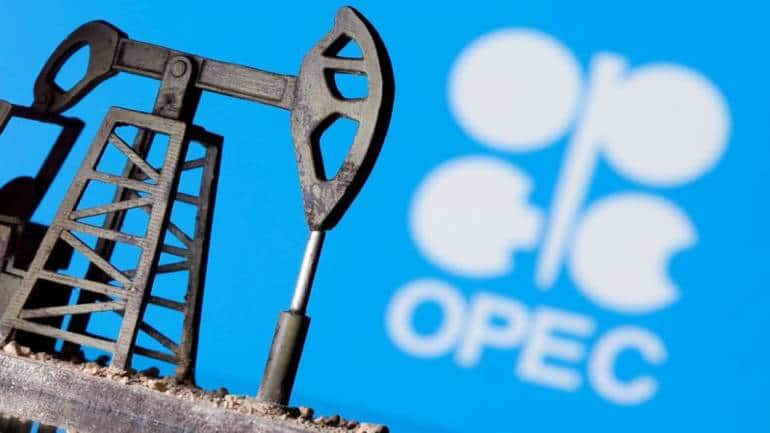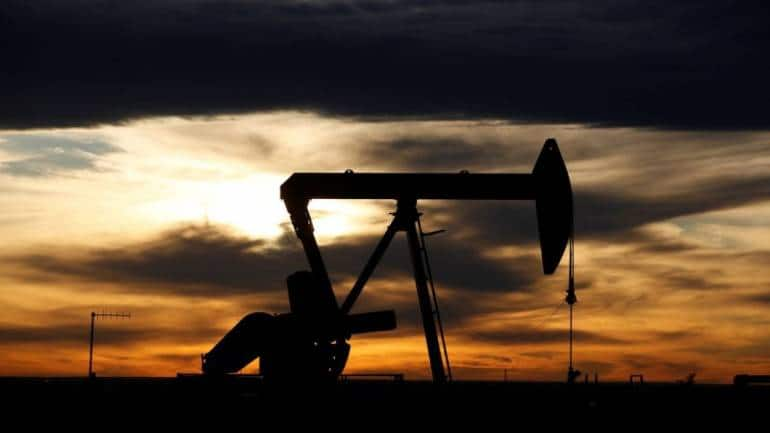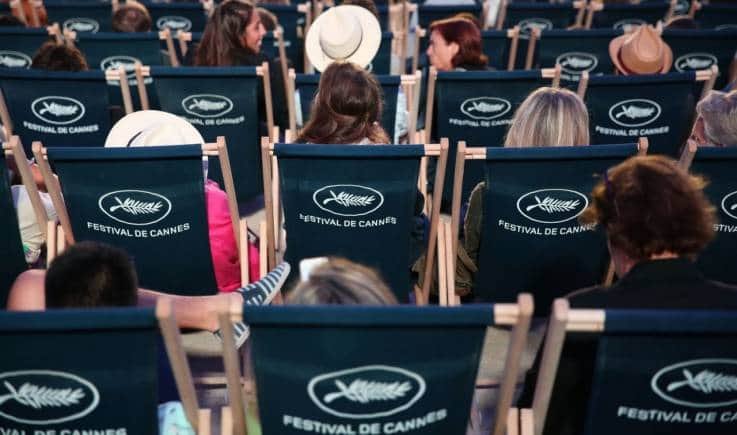OPEC+ reconvenes after wrangling over production rise
 ]
]
Source: Reuters
The members of the OPEC+ alliance of oil producing countries reconvened on Friday, a day after failing to reach agreement on production quotas from August onwards.
Thursday was a busy day of video-conferencing for the alliance’s ministers, starting with a meeting between the 13 members of OPEC proper led by Saudi Arabia, followed by a technical meeting (JMMC) and full discussion between the 23 members of OPEC+.
The wider grouping includes Russia, the world’s second-largest oil producer.
The 23 states in the alliance restarted a technical meeting (JMMC) at around 1500 GMT – two hours behind schedule – with the crucial OPEC+ ministerial meeting to discuss future policy expected to follow.
A Russian government spokesman said “work was continuing” on an agreement, but refrained from commenting when asked if the current impasse could produce a crisis like that seen in March 2020.
Back then, a falling out between Moscow and Riyadh sent US crude prices below zero for the first time in history.
The hitch in Thursday’s discussions came “due to the UAE raising a last minute objection to the Russian-Saudi Arabia deal reached earlier in the day”, according to analysts from Deutsche Bank.
“The UAE, which has raised its production capacity since 2018 when the individual baselines were set, insisted on having its baseline lifted by 0.6 million barrels per day (bpd) to 3.8 million bpd, thereby allowing them a unilateral production increase within the current quota framework,” according to Ole Hansen from Saxobank.
“Negotiations today will be difficult as OPEC+ knows that if the UAE is allowed to produce from a different base, other members may protest,” said Louise Dickson from Rystad.
- Complex market -
The Bloomberg agency reported on Thursday that an agreement had been floated which would involve raising production by 400,000 barrels per day (bpd) each month from August onwards, reaching an extra two million bpd by the end of 2021.
This would fit the broad strategy followed by OPEC+ since May: gradually increasing output which it had drastically cut in reaction to the collapse in demand at the beginning of the pandemic.
Since the beginning of the economic crisis the group has held almost monthly meetings to coordinate their response.
Their strategy has succeeded in steering prices back upwards – they are now at levels not seen since October 2018.
The alliance has to navigate a complex market, characterised by an uptick in demand which may yet turn out to be fragile, as well as the possible complication of a return of more Iranian exports in the medium term.
In addition, current high prices are prompting grumbles from large crude consumers such as India.
Also expected to be on the agenda on Friday will be whether the OPEC+ can extend its current production deal “through to the end of 2022”, noted Neil Wilson from Markets.com.
Oil row flares as UAE rejects ‘unjust’ OPEC+ output deal
 ]
]
Representative image | Source: Reuters
The United Arab Emirates on July 4 criticised the current oil output deal among OPEC+ alliance members as unjust, escalating a row that could derail the energy market’s post-pandemic recovery.
The UAE’s push to increase its production baseline is reported to have derailed last week’s meeting of the alliance of oil-producing countries, and also sets it against its ally Saudi Arabia.
“The UAE demands to have justice in the new agreement after April, and it is our sovereign right to demand reciprocity with the rest of the countries,” Energy Minister Suhail Mohamed Al-Mazrouei said in a television interview.
“It is unreasonable to accept further injustice and sacrifice – we have been patient,” he said in an interview with Sky News Arabia, in unusually frank comments from an official in the UAE, which typically handles disputes discreetly.
While OPEC+ leaders Saudi Arabia and Russia support extending the deal as it is until December 2022, the UAE wants to lock in an increase in production before agreeing to an extension beyond April when the current agreement expires.
Videoconference talks were held Friday between the 13 members of OPEC proper led by Saudi Arabia, followed by a technical meeting and discussions between the 23 members of OPEC+.
The wider grouping includes Russia, the world’s second-largest oil producer.
The hitch in discussions came “due to the UAE raising a last-minute objection to the Russian-Saudi Arabia deal reached earlier”, according to analysts from Deutsche Bank.
“The UAE, which has raised its production capacity since 2018 when the individual baselines were set, insisted on having its baseline lifted by 0.6 million barrels per day (bpd) to 3.8 million bpd, thereby allowing them a unilateral production increase within the current quota framework,” according to Ole Hansen from Saxobank.
“Negotiations… will be difficult as OPEC+ knows that if the UAE is allowed to produce from a different base, other members may protest,” said Louise Dickson from Rystad.
OPEC+ essentially faces a choice between acceding to Abu Dhabi’s demands, or failing to reach a deal which could drive crude prices sharply higher. Also at risk is the unity of the alliance, which if broken could trigger a price war that would create global economic havoc.
- Angst over high prices -
OPEC said its meeting would reconvene on Monday at the cartel’s Vienna headquarters.
Al Mazrouei said the UAE was ready to have a committee of independent bodies formed to look into its request.
Bloomberg news agency reported Thursday an agreement had been floated that would raise production by 400,000 barrels per day (bpd) each month from August onwards, reaching an extra two million bpd by the end of 2021.
This would fit the broad strategy followed by OPEC+ since May: gradually increasing output which it had drastically cut in reaction to the collapse in demand at the beginning of the coronavirus pandemic.
Since the beginning of the economic crisis, the group has held almost monthly meetings to coordinate their response.
Their strategy has succeeded in steering prices back upwards – they are now at levels not seen since October 2018.
The alliance has to navigate a complex market, characterised by an uptick in demand which may yet turn out to be fragile, as well as the possible complication of a return of more Iranian exports in the medium term.
But current high prices – which saw Brent crude climb above $76 a barrel last week – are prompting grumbles from large crude consumers, such as India.
Abu Dhabi’s muscular position is also pitting it against its long-time ally and neighbour Saudi Arabia, the world’s largest oil exporter.
The UAE reportedly floated the idea of leaving OPEC+ in late 2020, in order to pump more oil and capitalise on the huge investment it has made to expand capacity.
“The UAE will push hard at this juncture to use this meeting to get their excess capacity recognised and brought back online, Roger Diwan, oil analyst at consultant IHS Markit Ltd, told Bloomberg News.
“Compromise exists, but it is just how they bring their capacity, not if.”
Indian stories at the 74th Cannes Film Festival, from July 6-17
 ]
]
The 74th edition of the Cannes film festival will be held from July 6-17.
Filmmakers, producers and sales agents are breathing a sigh of relief as the Cannes Film Festival returns in a physical format next month, to celebrate cinema and provide much-needed succour to a beleaguered film industry. In 2020, the coronavirus pandemic had forced organisers to cancel the event. This year, the influential festival in the French Riviera is back on and ready to roll out the red carpet to the world of cinema.
An exciting line-up of some of the finest filmmakers and emerging talents in the world awaits the 74th edition of the Cannes festival that will be held from July 6-17.
Indian cinema will be represented in the Cannes official selection by Invisible Demons, a gritty documentary on the air pollution in Delhi, directed by Delhi-born filmmaker Rahul Jain. The Directors’ Fortnight, one of the two parallel selections of the Cannes festival, will screen A Night of Knowing Nothing, the debut feature by Film and Television Institute of India alumnus Payal Kapadia.
Filmmaker Payal Kapadia.
Eka (Solo), by Kolkata-born director Suman Sen is part of the 1o film projects by young filmmakers from emerging countries at the La Fabrique Cinema programme of the Cannes film market.
Cinema for the climate
Jain, whose debut documentary Machines (2016), about the stifling conditions endured by workers in a textile factory in Gujarat, had won international acclaim, says he wanted to make a movie about the toxic air of Delhi that went beyond the headlines. His artistic pursuit, instead, focuses on the current geological age marked by negative influence of human activity on the planet.
“I wanted to explore how artists in the last 100 years of filmmaking have been able to communicate our species’ relationship to the natural world, because the most drastic changes came about in the 20th century, which was also the century of cinema,” says Jain, who chose visual semiotics for a master’s degree in aesthetics and politics at the California Institute of the Arts.
Invisible Demons, the only Indian film in the Cannes official selection, is among a seven-strong new festival section, Cinema for the Climate, introduced this year to portray the urgency of protecting the environment in such topics as water shortage and education of girls in Sub-Saharan Africa, and the dangers of nuclear energy through a journey from Chernobyl to Fukushima.
“It’s affecting everybody. Wherever you are on the globe, whatever status you have, it’s affecting you. Exactly like the Covid-19 pandemic,” says Jain’s Finnish producer Iikka Vehkalahti, who also produced Machines.
Beginning with this edition, the Cannes festival is taking steps to create a carbon-neutral event by reducing emissions and waste and offsetting emissions, including measures like switching to electric and hybrid vehicles (these make up 60% of the festival’s official car fleet now), halving printed materials, and even reducing the volume of red carpet by 53%.
The festival will reduce the volume of red carpet by 53%, and use recycled materials as part of a new initiative to make the event carbon-neutral.
Directors’ Fortnight
Eka, Mumbai-based Sen’s debut feature project in Bengali and Hindi, tells the story of Biplab, a 56-year-old insurance agent in Kolkata who unwittingly sets off a powerful people’s movement through a single man’s defiance of a giant statue being built in the city to honour the common man.
“I believe that the reason our society is failing today, comes from the burden of our past. I see the world through my father’s eyes. Their generation failed us entirely, in every sense,” says Sen. “The film (which is in development stage) reflects and documents the kind of time I am living in for the last couple of years. A time of hatred, intolerance, violence,” he adds.
Suman Sen
Kapadia’s epistolary film, A Night of Knowing Nothing is about a young woman writing letters to her estranged lover. “This poetic first feature is at first an epistolary film, but then slowly spreads out as a hybrid narration, mixing dreams, reality, memories and archives,” says Paolo Moretti, artistic director of Director’s Fortnight. “The young Indian director Payal Kapadia transcends the documentary material and draws the portrait of a contemporary Indian youth,” he adds.
Directors’ Fortnight will show 24 feature films, including Iranian director Jafar Panahi’s son Panah Panahi’s Jadde khaki (Hit the Road).
Top honours, festival news
Annette, French director Leos Carax’s first film in English, starring Adam Driver and Marion Cotillard, will open the Cannes festival on July 6. Set in contemporary Los Angeles, Annette tells the story of Henry, a stand-up comedian, and Ann, a famous singer. Their lives change when their first child, Annette, a mysterious girl with an exceptional destiny, is born.
Carax will be vying for the prestigious Palme d’Or with fellow auteurs like French filmmaker Mia Hansen-Love (Bergman Island), American Wes Anderson (The French Dispatch), Italian Nanni Moretti (Three Floors), and Iranian filmmaker Asghar Farhadi (A Hero).
A new Cannes Premiere section will witness the films of Korean director Hong-Sang Soo (In Front of Your Face), American director Oliver Stone (JFK Revisited: Through the Looking Glass) and British director Andrea Arnold (Cow).
American director Spike Lee heads the competition jury, becoming the first black president of the Cannes competition jury. The nine-member jury has five women (Senegalese director Mati Diop, Canadian-French singer Mylene Farmer, American actor Maggie Gyllenhaal, Austrian director Jessica Hausner and French actor Melanie Laurent).
Due to travel restrictions in France (a traffic light system of green, orange and red) for countries with Covid-19 concerns, the festival will see lower attendance this year. India falls on the list of red countries, making it difficult for professionals from the country to travel to Cannes.
“I have to undergo a 10-day quarantine,” says Sen, who will be present in Cannes with his producer Arifur Rahman from Bangladesh, whose country will be represented in the official selection at Cannes for the first time in Rehana Maryam Noor by Abdullah Mohammad Saad.
“It is a fantastic eruption of life coming back,” says the Cannes festival’s artistic director Thierry Fremaux. “Cinema is not dead. The idea of losing everything has impacted scriptwriters and filmmakers,” he adds. “Cannes is a living performance. We are all on deck to make 2021 a successful year for cinema.”